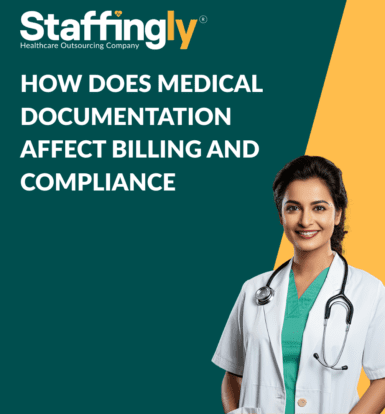On-Demand Outsourcing BPO Services for Healthcare Providers With 24/7 Coverage!
Save up to 70% on staffing costs!
Browse Specialty Staffing Services
How Can Outsourcing Medical Coding Ensure HIPAA Compliance?
Dr. Smith sat at her desk, scanning through patient records, her mind drifting back to the frustrations of managing the office’s medical coding. As the practice grew, so did the mounting administrative workload. Between patient appointments, ensuring her staff was well-managed, and keeping up with the latest regulations, Dr. Smith found herself asking a tough question: Are we doing enough to ensure HIPAA compliance in our coding process? With the risk of data breaches and the complexity of coding systems,

How Digital Twins Are Transforming Insurance ? Use Cases & Challenges?
In recent years, digital twins have transitioned from theoretical concepts to highly practical tools across various industries. Initially, digital twins were used in manufacturing to simulate and optimize systems. However, their adoption is now growing across sectors like insurance, where they are beginning to shape the way insurers assess risk, manage claims, and serve customers. As the world of digital insurance continues to evolve, digital twins are proving to be a game changer. The ability to create real-time, data-driven models

What Are the Benefits of Medical Scribing Outsourcing for Healthcare Providers?
It’s a busy Monday morning in Dr. Smith’s clinic. He rushes from one patient room to the next, taking notes on his tablet and trying to keep track of medical histories, diagnoses, and treatment plans. After seeing several patients, he feels overwhelmed by the amount of time spent on documentation. With a sigh, he wonders, “Is there a better way to manage this workload?” As the healthcare industry continues to evolve, one solution that has gained traction is medical scribing

How Does Medical Documentation Affect Billing and Compliance?
Every time a physician documents a patient visit, they’re not just recording medical facts—they’re laying the foundation for billing and compliance. Think about it: if the documentation is incomplete, inaccurate, or unclear, it could lead to claim denials, audit flags, or even legal penalties. So, how does medical documentation affect billing and compliance? Let’s walk through the impact it has—and how healthcare providers can improve it. Doctor Dialogue: A Chat Between Dr. Smith and Dr. Joe Dr. Smith: “Joe, I

What Is Revenue Cycle Management in Healthcare?
Behind every patient visit, every diagnosis, and every follow-up call is something you might not see—but your practice feels it every day. It’s the core of your financial operations: Revenue Cycle Management (RCM). So, what is revenue cycle management in healthcare? It’s not just about billing. It’s the system that ensures healthcare providers are paid for their services, bills are accurate, and regulations are followed. Let’s dive into what RCM really is, and why it matters. Doctor Dialogue: A Conversation

What Makes Revenue Cycle Management So Critical in Healthcare?
Revenue Cycle Management (RCM) often stays behind the scenes, but its impact is felt everywhere—from how fast providers get paid to how satisfied patients feel about their healthcare experience. This story begins like many in the medical field—with a concerned doctor and a growing problem in the clinic’s finances. Doctor Dialogue: A Conversation Between Dr. Smith and Dr. Joe Dr. Smith: “Joe, I’m reviewing last month’s numbers, and something’s off. Our claims are being denied, and payments are delayed. We’re

How Does Medical Coding Ensure Compliance and Accuracy in Healthcare?
Imagine a healthcare provider managing a patient’s records, from diagnoses to treatments, and ensuring that every detail is correctly documented for reimbursement and legal compliance. In fact, medical coding ensures that this documentation is not only accurate but also standardized and compliant with various healthcare regulations. Moreover, proper medical coding plays a crucial role in minimizing errors and ensuring that healthcare providers receive the appropriate reimbursements. However, how exactly does it work to ensure accuracy and compliance? Let’s take a

Is a Clean Slate Approach the Future of Healthcare FHIR?
( This content is curated from social posts by various doctors and healthcare professionals and their communities. To provide helpful insights and first-hand perspectives to fellow healthcare professionals, we’d like to first thank the amazing content shared on social media by healthcare professionals like you.) Imagine you’re a healthcare professional, managing a system full of complex, fragmented patient data. Old systems, new systems, patchwork solutions… it’s like trying to fit a square peg into a round hole. The data flows
 Book a Demo to Build Your Team Today!
Book a Demo to Build Your Team Today!


 Read Case Studies
Read Case Studies 



 Virtual Medical Assistants
Virtual Medical Assistants



